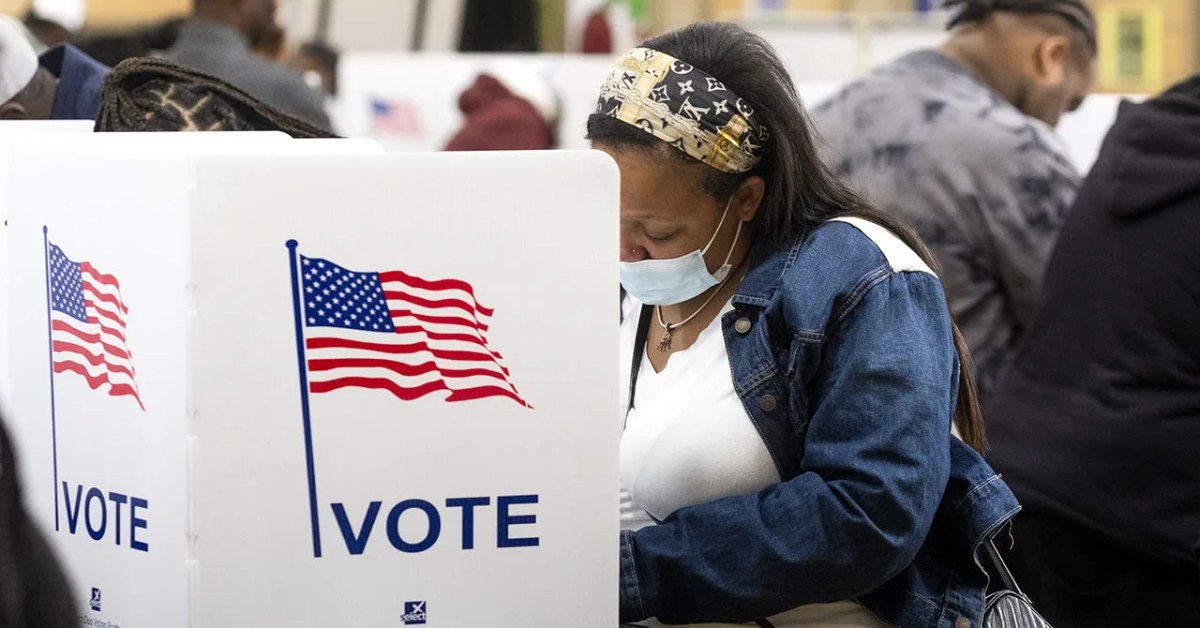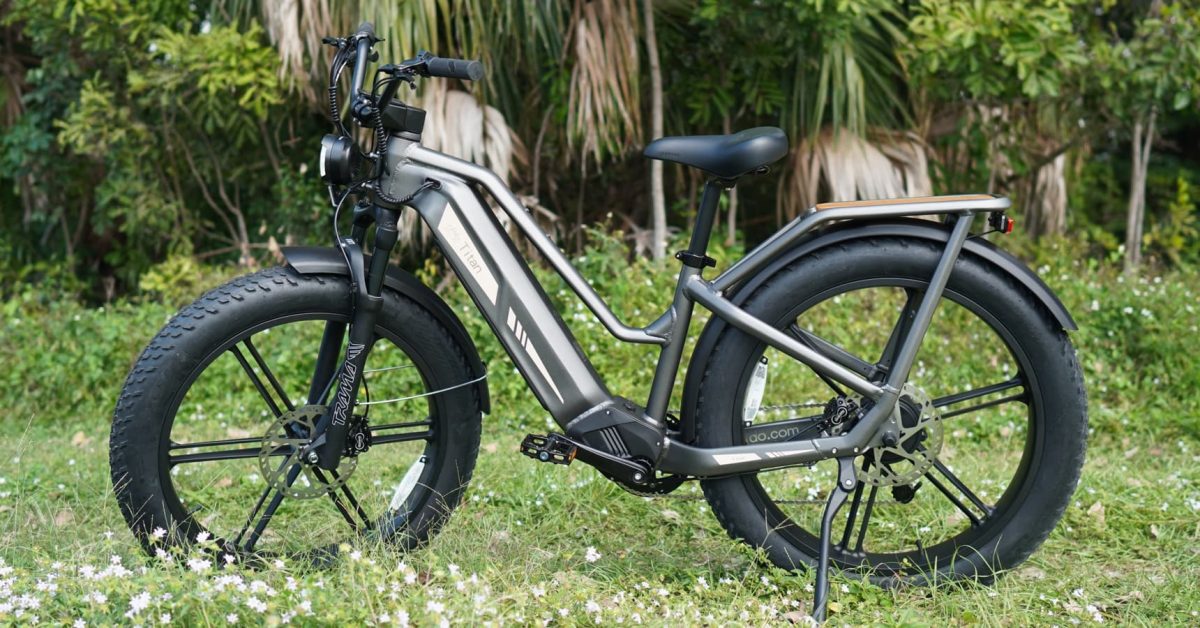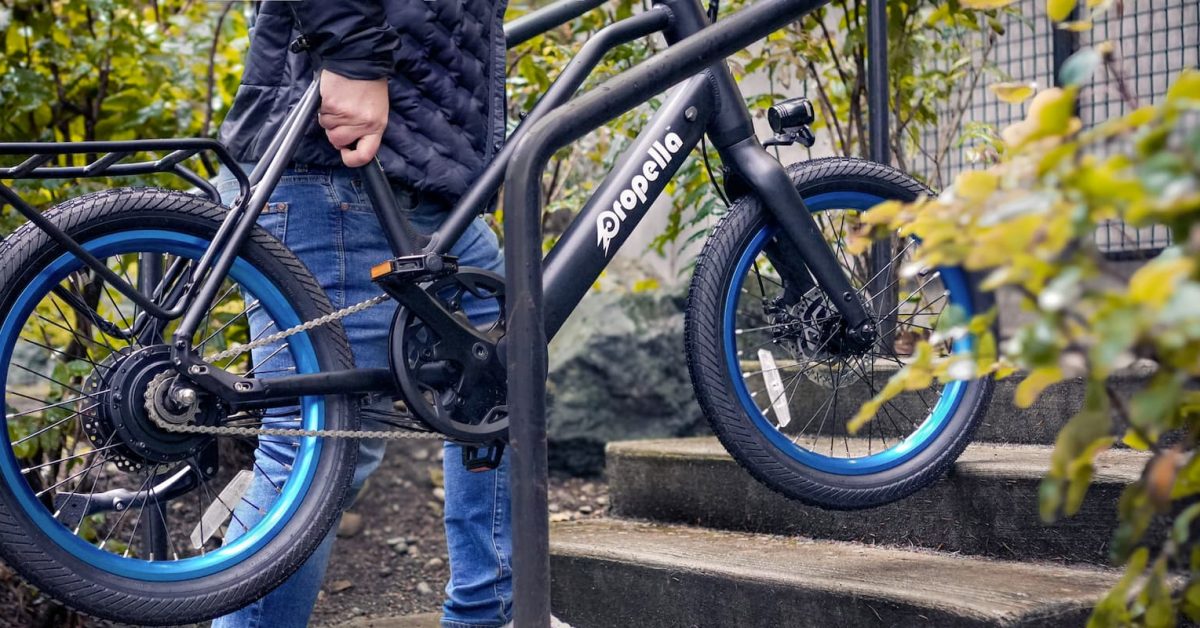I have been sharing this link for anyone that will read it. It's a federal law concerning e bikes in which the Congress says an e bike of 750w or less is not to be classified as a motor vehicle. Some will say that this has to do only with importation of e bikes but it's implication could be that in all circumstances it shouldn't be classified as a motor vehicle. I sent a copy to the local NFS and to National NFS encouraging them to use the law to declassify e bikes of 750W as motorized or motor vehicles. I haven't received a response. Hopefully they are mulling it over. More than likely they are ignoring it. But I think folks that want to see e bikes on bicycle trails should use the law as justification. If it can be argued that Congress has already spoken about the issue then NFS is ignoring what Congress has established as law. https://www.congress.gov/.../107th.../house-bill/727/text...
You are using an out of date browser. It may not display this or other websites correctly.
You should upgrade or use an alternative browser.
You should upgrade or use an alternative browser.
Federal law prohibiting classifying e bikes of 750w and below as motor vehicles
- Thread starter tincan53
- Start date
M
Member 4888
Guest
Ebikes and more specifically Class-1 ebikes were defined in 2002 by the CPSA and as long as an ebike conforms to that definition they are not considered a motor vehicle, they are considered a bicycle with all rights and privileges afforded to bicycles. I ride mine all over Mt. Rainier National Park simply by disconnecting the throttle. As far as Congress having already made a decision you have but to remember Roe vs Wade. The more morons riding little electric motorcycles or far worse the morons that can't even understand what an ebike is... the more changes will become necessary. Stay safe.
M
Member 4888
Guest
No... worse, Roe vs. Wade was a Supreme Court decision with as much as 70% of Americans supporting it, not a group of self-serving entitled politicians working in their own best interests. Now a small handful of sociopaths take it upon themselves to decide what's best for America in total disregard of those American citizens. The point is that just because Americans have decided what they want and what they think is best for the country on any specific topic doesn't mean it can't be changed by s**theels working for their own agenda. 99% of Americans don't even understand why Roe vs. Wade was reversed.Roe v. Wade was not enacted by Congress.
That came off as a bit snotty. Worded wrong. My question is because I'm very intrested in seeing both sides.What's the problem then? You having issues with local laws making up rules?
Can you explain what issues your having in your location?
heybikerider
New member
What's the problem then? You having issues with local laws making up rules?
Yes, there should be set rules that everyone should know and follow then some jerkhole area making up something different.
"A"
Well-known member
- Local time
- 12:25 PM
- Joined
- Feb 13, 2022
- Messages
- 920
The problem is: only 25-30% of eligible voters actually vote in America.
Local elections are probably lower than 20%.

 www.pewresearch.org
www.pewresearch.org
Local elections are probably lower than 20%.

1. Voter turnout, 2018-2022
American Trends Panel: Pew Research Center’s online probability survey panel, which consists of more than 12,000 adults who take two to three surveys each
JerryB
Well-known member
If they ever take away my ebikes ability to make its own healthcare decisions.......I will be pissed.
m@Robertson
Well-known member
And the federal rules ONLY govern ebike manufacturing standards. The federal law being discussed here is not really a law. It comes from the Consumer Product Safety Commission, a branch of the Federal Trade Commission, which simply sets manufacturing safety standards, and governs manufacturers (via cease-and-desist letters when they choose to issue them).Most state eBike statutes closely follow the federal statutes.
The state statutes that exist in most of these United States are modeled after California legislation that initially established the 3-class system. It also carried over the federal '750w' limit.
Except there is no such limit. And most people who read it, legislators included, miss the boat on this.
The standard as-written actually reads 'less than 750w'. And all of the 3-class state legislation I have read also propagates this definition. So a 750w motor is non compliant. To be compliant with the ebike definition, the rule is actually 749w or less. Everyone ignores this, right? Not in Hawaii. The City of Honolulu revoked bicycle registrations there for 750w ebikes specifically because they were over the 749w limit.
Hooray for bureaucracy. Nothing rated for 750w is legal. Oh and also the federal standard has a caveat in it that establishes a speed limit, but the speed limit is dependent on the rider's weight. So a heavier rider can have more power than 749w to be able to hit the 20 mph limit. None of the states use this part of the federal manufacturing standard in their legislation.
Don't spend too much time worrying about any of this. The CPSC is well aware of the discrepancies in the standard and in how the states are implementing it. They've unofficially gone on record (via a reported conference call with CPSC attorneys and a quixotic busybody who was trying to demand they force the states to conform to the federal standard) as saying they want to leave this to the states.
NWA Cycling
Member
I live in NW Arkansas and the city of Fayetteville in now banning e-bikes with 750w and higher from the Razorback Greenway. Fines can be up to $500.
- Local time
- 12:25 PM
- Joined
- Jan 21, 2021
- Messages
- 3,272
hmmmm.................
- Local time
- 12:25 PM
- Joined
- Jan 21, 2021
- Messages
- 3,272
God Bless Texas 
flyingjack
Member
NWA- that is significant as NW AR has (arguably) the best/most bike trail system in the US. A lot of Waltons $$ spent on that area. Coming from Colo we plan on 1-2 trips there each year. Also enjoy the backcountry flying.
"A"
Well-known member
- Local time
- 12:25 PM
- Joined
- Feb 13, 2022
- Messages
- 920
Congress finally agrees on electric bike bill – but not the one everyone wanted

 electrek.co
electrek.co

Congress finally agrees on electric bike bill - but not the one everyone wanted
Republicans and Democrats rarely agree on anything in the highly divided US House of Representatives. But one thing they have...
 electrek.co
electrek.co
In most states, an eBike with more than 750w would not be considered an electric bicycle.I live in NW Arkansas and the city of Fayetteville in now banning e-bikes with 750w and higher from the Razorback Greenway. Fines can be up to $500.
"A"
Well-known member
- Local time
- 12:25 PM
- Joined
- Feb 13, 2022
- Messages
- 920
Watch out: New Jersey bill to require all e-bike riders to register, get insurance

 electrek.co
electrek.co

Watch out: New Jersey bill to require all e-bike riders to register, get insurance
It’s been a rough week for anyone who enjoys the freedom of riding e-bikes without undue state-applied hassle and burden....
 electrek.co
electrek.co
Captchef
New member
The class system is nonsense. I don't think we'd want big motorcycle size electric bikes on trails and paths, due to their obvious dangers. But beyond that situation, all we need are speed limits, and people to obey them. For the most part, people obey laws....when they're fair and make sense. We don't ban Corvettes from school zones because they can go faster than 25mph... The culprits are the riders. We need laws that say common sense things like 'don't pass people at more than 10mph on a path, or a max speed limit of 20mph on trails and paths. I had a 750w ebike that's motor burned out coming back up the steep hill I live on. Both the motor and the controller burned up. Now I need a 1000w motor to get up the steep hill, for the bike's health....and mine. No heart attacks needed. A class 1 or 2 and even class 3 bike isn't safe to ride in traffic, unless the motor can have you riding at a safe speed in traffic. I have to ride thru city streets to get to the bike trails. My 1000w motor is just powerful enough to get up to 25mph fast enough to be safe. But the bike only goes 30mph tops so it's not like I'm riding a rocket. Speed limits, training, signage....that's enough....except also where legalities might take you if you screw up. I need to ride. It's my only form of exercise I can do for hours, as I'm 74, with issues.And the federal rules ONLY govern ebike manufacturing standards. The federal law being discussed here is not really a law. It comes from the Consumer Product Safety Commission, a branch of the Federal Trade Commission, which simply sets manufacturing safety standards, and governs manufacturers (via cease-and-desist letters when they choose to issue them).
The state statutes that exist in most of these United States are modeled after California legislation that initially established the 3-class system. It also carried over the federal '750w' limit.
Except there is no such limit. And most people who read it, legislators included, miss the boat on this.
The standard as-written actually reads 'less than 750w'. And all of the 3-class state legislation I have read also propagates this definition. So a 750w motor is non compliant. To be compliant with the ebike definition, the rule is actually 749w or less. Everyone ignores this, right? Not in Hawaii. The City of Honolulu revoked bicycle registrations there for 750w ebikes specifically because they were over the 749w limit.
Hooray for bureaucracy. Nothing rated for 750w is legal. Oh and also the federal standard has a caveat in it that establishes a speed limit, but the speed limit is dependent on the rider's weight. So a heavier rider can have more power than 749w to be able to hit the 20 mph limit. None of the states use this part of the federal manufacturing standard in their legislation.
Don't spend too much time worrying about any of this. The CPSC is well aware of the discrepancies in the standard and in how the states are implementing it. They've unofficially gone on record (via a reported conference call with CPSC attorneys and a quixotic busybody who was trying to demand they force the states to conform to the federal standard) as saying they want to leave this to the states.
m@Robertson
Well-known member
I agree with all those things, and some of them are already in place (the 20 mph speed limit on paths comes to mind immediately). We have speed limits, and rules that say 'max speed should never be faster than what is safe for conditions' which covers every conceivable scenario you can think up. Also, cars have no class system and speed limits work just fine.
But we don't live in a world where many don't seek out every opportunity to wag their fingers at you, or make new redundant laws. Also think for a minute about the state of the bicycle manufacturer and retailer world when ebike laws were introduced. The laws we have now in part became what they are via bicycle industry influence to tamp ebike use down (this being before the industry figured out they were here to stay, and how they could make money off of them).
Now that the mainstream industry is thoroughly invested in this game, and the ebike using population is on the way to making them ubiquitous, we'll slowly see a shift away from regulation (no less than a decade from now). Remember it took decades for derailleurs to be accepted as not being a dishonorable cheat. In the present day that viewpoint is so far off the mark its hard to even credit as being true.
In the meantime, there will be whining. So get out your earplugs.
But we don't live in a world where many don't seek out every opportunity to wag their fingers at you, or make new redundant laws. Also think for a minute about the state of the bicycle manufacturer and retailer world when ebike laws were introduced. The laws we have now in part became what they are via bicycle industry influence to tamp ebike use down (this being before the industry figured out they were here to stay, and how they could make money off of them).
Now that the mainstream industry is thoroughly invested in this game, and the ebike using population is on the way to making them ubiquitous, we'll slowly see a shift away from regulation (no less than a decade from now). Remember it took decades for derailleurs to be accepted as not being a dishonorable cheat. In the present day that viewpoint is so far off the mark its hard to even credit as being true.
In the meantime, there will be whining. So get out your earplugs.
Similar threads
- Replies
- 2
- Views
- 1K
- Replies
- 0
- Views
- 237
- Replies
- 0
- Views
- 647